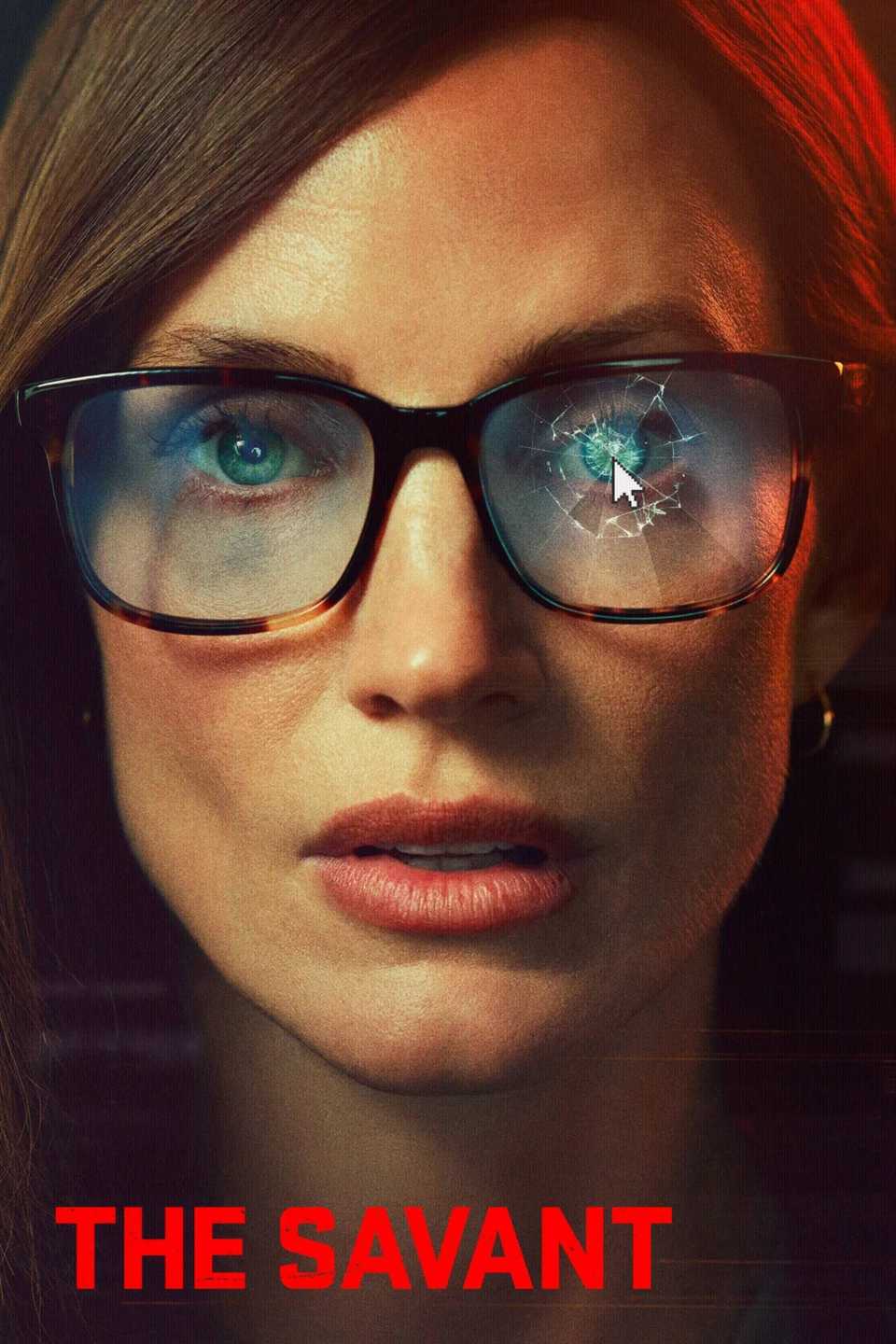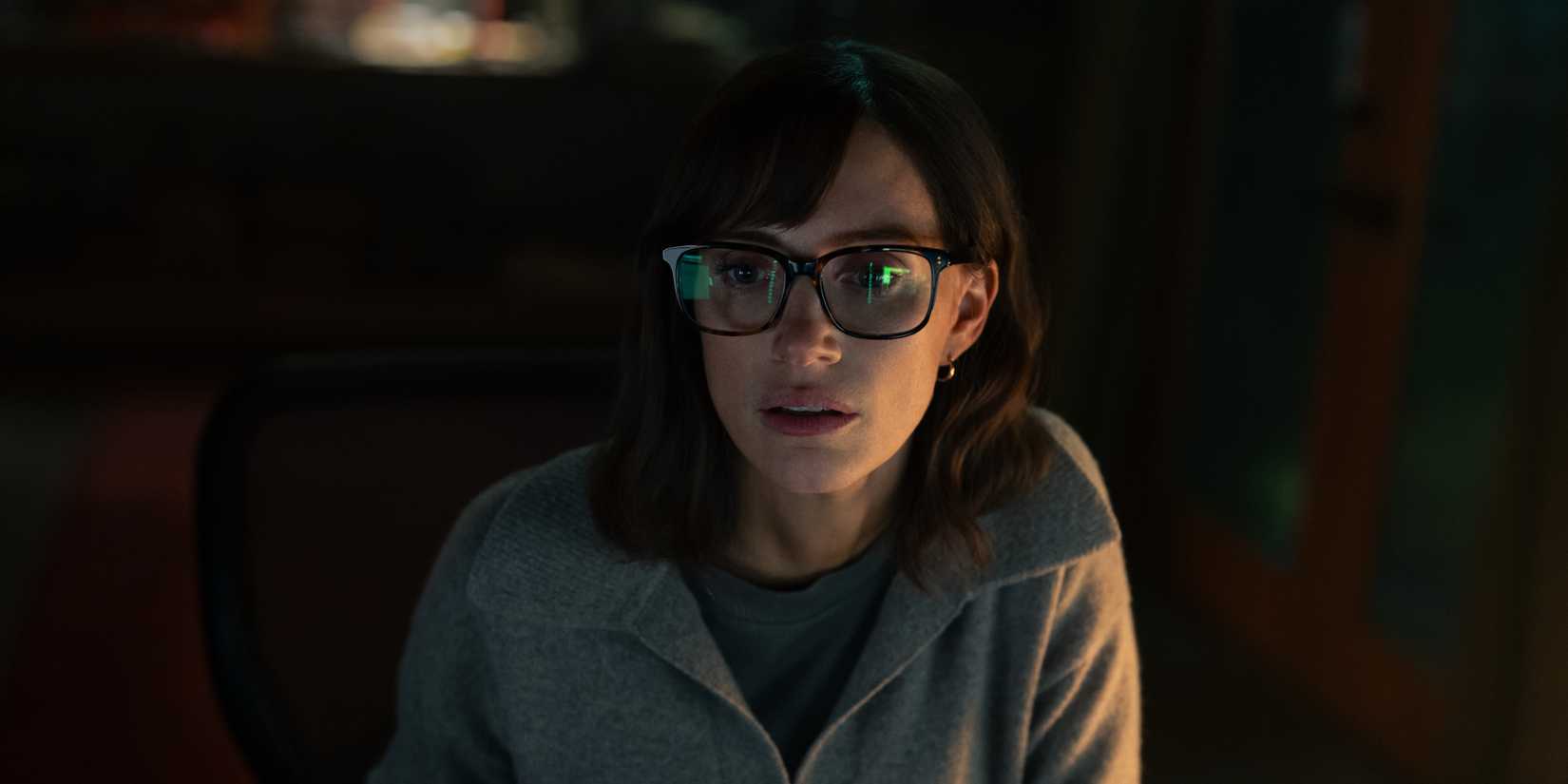[ad_1]
The next day’s lunches are packed, the kids are in bed, and Jessica Chastain is cracking a can of Fresca in the quiet of her backyard shed. On the screen in front of her: not Pinterest boards or PTA group chats, but the coded language of online hate forums, where would-be extremists recruit and radicalize in plain sight. This is The Savant, a real-life-inspired prestige thriller about the sinister, often invisible creep of domestic extremism. It was supposed to be Apple TV+’s boldest play of the fall. Instead, it’s on pause — indefinitely.
And the timing only makes the show’s streaming time-out more curious. Just days before the show’s scheduled September 26 drop, Apple quietly yanked The Savant from its fall slate. No concrete explanation. No new release date in sight. It’s a decision that has puzzled critics (this one included) who’ve had a chance to screen the series, and one that isn’t sitting well with its star. Chastain, who also executive-produced the show, has publicly disagreed with the streamer’s choice to nix the project (for now), which makes the last-minute scheduling pivot even more of a head-scratcher. And the news comes in the very same week that Apple TV+ is simultaneously trumpeting the return of Slow Horses, a fan-favorite espionage drama which, irony of ironies, opens its fifth season with a fictional, seemingly politically-motivated public shooting. Why is one story too risky, while the other is deemed “trigger”-free entertainment?
Jessica Chastain’s ‘The Savant’ Is About the Real-Life Hunt for Domestic Extremists
At its core, The Savant is about a woman living two lives — one safe, suburban, and achingly ordinary; the other perilously entangled in the darkest corners of the internet. Chastain plays Jodi Goodwin, known by her colleagues as the titular “Savant.” She’s an undercover investigator tasked with infiltrating domestic extremist groups online, helping the FBI to stop attacks before they can play out. And she’s damn good at her job, too. She’s not James Bond in stilettos. She’s not some hacker prodigy cliché. She’s just a former soldier, current stay-at-home mom who sneaks out to her backyard shed after bedtime, logging onto hate forums to track conversations that begin as memes and end as manifestos. The show’s genius is in making the surveillance of extremist culture feel less like spycraft and more like emotional labor. Jodi’s job is basically that of a Facebook moderator, except, instead of ticketing and scrubbing truly abhorrent content, she’s hunting down its creators before they can express their digital vitriol IRL with a gun, a homemade bomb, or a high-profile kidnapping attempt.
The series is inspired by true reporting from journalist Andrea Stanley’s Cosmopolitan feature, which followed a real investigator who embedded herself in online hate communities to stop mass shootings before they happened. That detail alone separates The Savant from the glossy thrillers it might otherwise get lumped in with. The stakes aren’t theoretical; they’re terrifyingly real. We’ve seen how digital radicalization moves from screen to street — from Charlottesville to January 6th — and the show doesn’t flinch from dramatizing that pipeline. In fact, plenty of the narrated online chatter by the men she hunts — Pablo Schreiber and Cole Doman playing just two — feels so real, it’s unsettling. Tonally, it’s prestige TV with a conscience. Yes, there’s suspense, double lives, and code words to decipher, but the real weight comes from the toll it takes: what it means to witness radicalization up close, to play along long enough to gather intel, and to balance that with raising children in a world where the threats you monitor online could materialize in your own neighborhood. It’s not about glorifying violence — it’s about exposing it, contact tracing its spread, and quarantining its many patient zeroes.
That’s why its intended release felt so timely. Online extremism isn’t some fringe subplot; it’s the headline of our digital age. Algorithms reward outrage, memes disguise recruitment, and the line between “free speech” and “inciting violence” has never been thinner. The Savant dares to dramatize an uneasy truth: that radicalization doesn’t happen in a foreign desert or a cult compound, but in the basement of your next-door neighbor who spends their free time scrolling online forums, bathed in the light of a blue screen. To delay that message, especially right now, feels less like a scheduling strategy or an attempt to spare an audience’s perceived sensibilities and more like a missed opportunity to reflect the world as it really is.
What Apple TV+ Postponing ‘The Savant’ Says About TV, Audiences, and Risk
While Apple hasn’t said much since making the call, Chastain has publicly voiced her concerns, saying that, while she values her partnership with Apple, she is not aligned with their creative decision-making. “In the last five years since we’ve been making the show, we’ve seen an unfortunate amount of violence in the United States,” Chastain wrote on Instagram, listing out the assassination of conservative commentator Charlie Kirk, the murder of Democratic representatives in Minnesota, the attempted kidnapping of Michigan Governor Gretchen Whitmer, and the hundreds of school shootings in between:
“These incidents, though far from encompassing the full range of violence witnessed in the United States, illustrate a broader mindset that crosses the political spectrum and must be confronted. I’ve never shied away from difficult subjects, and while I wish this show wasn’t so relevant, unfortunately, it is. The Savant is about the heroes who work every day to stop violence before it happens, and honoring their courage feels more urgent than ever. While I respect Apple’s decision to pause the release for now, I remain hopeful the show will reach audiences soon.”
The issue here isn’t just Apple’s risk-averse knee-jerk reaction; it’s what TV execs and streaming platforms think of the audiences they serve. Is the average TV viewer that allergic to “difficult,” or do Hollywood suits just think we are? Stories that don’t come neatly pre-wrapped in heroism or catharsis are suddenly a business liability. But The Savant isn’t trauma porn; it’s part exposé, part character study, spending just as much time digging into the personal trauma of its main heroine as it does her fictional online life. It asks uncomfortable questions about how people get radicalized, how platforms and bystanders enable it, and what the costs are when we look away, but shouldn’t we be doing that already? Aren’t audiences interested in things that make us uncomfortable? Just look at the appetite for morally complex shows like The Morning Show, Black Mirror, and Adolescence, or the raging true crime boom. Smart, uneasy, immediate content is thriving, so why is this show the metaphorical line in the sand?
Postponing The Savant proves even one of the richest, smartest tech companies in the world can confuse discomfort with danger. In trying to “protect” viewers, Apple may have actually denied them something of real value — entertainment, yes, but also enlightenment. If it had aired, sure, it might have sparked contentious conversations, but more importantly, it might have informed them. In 2025, that’s a pretty good trade when it comes to prestige TV.

- Release Date
-
September 26, 2025
- Network
-
Apple TV+
- Directors
-
Matthew Heineman
- Writers
-
Melissa James Gibson
-

-

Trinity Lee Shirley
Maeve
-

Michael Patrick Thornton
Gary
-

[ad_2]
